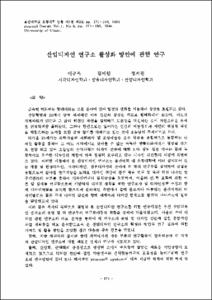울산의 노사관계
- Alternative Title
- Industrial relation in Ulsan
- Abstract
- 이 글은 고용조정을 둘러싼 울산의 노사갈등사례를 통하여 최근의 경제사회적 환경에서 개별기업의 노사관계가 노사갈등으로 변화하는 과정을 분석한다. 대공자이 밀집된 울산의 노사관계는 실업의 증가와 정리해고제의 법제화 등 경제·제도적 환경의 변화에 직접적인 영향을 받았다. 특히 대공장 생산직중심이라는 지역고용구조와 10년의 노동조합활동이라는 역사적 특성으로 인하여, 자동차 생산업체와 같이 대규모 고용조정의 필요성이 제기된 기업체의 노사관계는 갈등적 형태로 나타났다.
울산의 사례는 경제위기시대에 적합한 노사관게가 무엇이며, 특히 협력적 노사관계가 한국에서 정착할 수 있는 가라는 문제를 제기한다. 울산에서 나타난 노사갈등은 최근의 경제·제도적 환경에서는 피할 수 없는 사회적 갈등이 다른 지억보다 먼저표면화된 것이다. 따라서 경제위기시대에 노동조합과 고용주의 경제적 손실을 공통적으로 최소화할 수 있는 현실적 고용조정방식을 찾는 일이 울산지역 뿐 만 아니라 한국사회 전반에 걸쳐서 협력적 노사관게를 정착시키는데 매우 중요하다.
This paper examines the recent trend of industrial relation in Ulsan. The ways of lay-off became the hottest issue in the area of industrial relation in 1998, when economic crisis and Tripartite Accord accompanied bankruptcies and massive lay-off. The weak social safety net also made the employees to stabilize their own employment status. The labor conflict in an automobile company in Ulsan occurred at such circumstances. Particularly in a company where a long tradition of trade union movement and the high political consciousness remained, the local trade union wanted alternative ways, including work sharing, when the employer argued that massive lay-offs were inevitable.
The case of labor conflict in Ulsan also presents how to solve the conflict in a new period of economic crisis, requiring us to find a new way of settling cooperative industrial relation. The positive side of the dispute settlement process was the fact that three political actors --- the government, national representatives of employers and trade union --- finally reached an agreement to minimize the extent of lay-offs. If the economic crisis resulted in a high unemployment rate and social costs, however, we should settle harmonious industrial relation in Korea as a whole.
This paper examines the recent trend of industrial relation in Ulsan. The ways of lay-off became the hottest issue in the area of industrial relation in 1998, when economic crisis and Tripartite Accord accompanied bankruptcies and massive lay-off. The weak social safety net also made the employees to stabilize their own employment status. The labor conflict in an automobile company in Ulsan occurred at such circumstances. Particularly in a company where a long tradition of trade union movement and the high political consciousness remained, the local trade union wanted alternative ways, including work sharing, when the employer argued that massive lay-offs were inevitable.
The case of labor conflict in Ulsan also presents how to solve the conflict in a new period of economic crisis, requiring us to find a new way of settling cooperative industrial relation. The positive side of the dispute settlement process was the fact that three political actors --- the government, national representatives of employers and trade union --- finally reached an agreement to minimize the extent of lay-offs. If the economic crisis resulted in a high unemployment rate and social costs, however, we should settle harmonious industrial relation in Korea as a whole.
- Issued Date
- 1998
- Type
- Research Laboratory
- Alternative Author(s)
- Lee, Sungkyun; Jo, Hyung Je
- Publisher
- 사회과학논집
- Language
- kor
- Rights
- 울산대학교 저작물은 저작권에 의해 보호받습니다.
- Citation Volume
- 8
- Citation Number
- 2
- Citation Start Page
- 301
- Citation End Page
- 320
- Appears in Collections:
- Research Laboratory > Journal of social science
- 파일 목록
-
-
Download
 000002024266.pdf
기타 데이터 / 744.52 kB / Adobe PDF
000002024266.pdf
기타 데이터 / 744.52 kB / Adobe PDF
-
Items in Repository are protected by copyright, with all rights reserved, unless otherwise indicated.